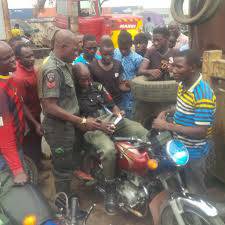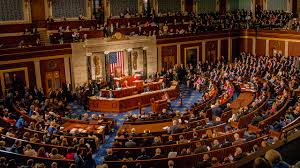Nigeria Is Sliding Back Into Civilian Dictatorship — Dele Momodu
In a candid appearance on Channels Television’s The Morning Brief on Wednesday, a prominent leader of the Peoples Democratic Party (PDP) expressed deep concern over the state of Nigeria’s democracy, especially as the nation approaches Democracy Day on June 12.
“I’m very happy that today coincides with the lead-up to June 12 (Democracy Day), so that if we still have any iota of conscience left, we’ll realise we have damaged this democracy,” he lamented.
He painted a grim picture, saying, “On the eve of June 12, Nigeria is virtually back to civilian dictatorship—rulers who couldn’t care less how their citizens feel or what they think. Nigerians are hungry, and our democratic ideals have been compromised.”
He emphasised the severity of the situation, expressing hope that the damage might not be beyond repair. “The audacity and effrontery of this set of politicians—whether in the executive, legislature, or local government—is unbelievable,” he added.
The PDP stalwart reflected on the sacrifices made during the fight for democracy, notably the struggle for June 12, and said current developments would be heartbreaking for those who fought and died for Nigeria’s democratic rights. “All those who suffered for this democracy—especially those in heaven—if they could see us today, they would be crying,” he stated.
Internal Crisis and Wike’s Domination of PDP
Turning to internal party affairs, he criticised the growing influence of Rivers State Governor Nyesom Wike within the PDP. The leader accused Wike of hijacking party decisions, destabilising internal structures, and questioning his democratic credentials.
“It’s ridiculous that one man, who should be busy in Abuja, is dictating where the PDP presidential ticket should go in 2027,” he said. “What Wike is doing is a replay of what he did in Rivers State—and he’s doing it with the backing of the top echelons of the party.”
He questioned Wike’s role in Nigeria’s fight for democracy, asking, “Where was Wike during the June 12 struggle? Who knew him then? Yet today, he speaks as if he’s Nigeria’s founding father.”
The leader also condemned Wike’s recent declaration of a state of emergency in Rivers State. “This crisis was orchestrated and worsened by one man,” he claimed. “It’s unprecedented in Nigeria’s history for such a drastic measure to be used simply because someone refuses to step down quietly.”
He accused Wike of staging a “coup” within the PDP, using coercion and political machinations to impose his will. “What Wike is doing now is tantamount to staging a coup against the party that made him—he has no moral right to dictate the party’s future,” he asserted.
Reacting to President Tinubu’s ‘Busybodies’ Remarks
The PDP leader also responded critically to President Bola Tinubu’s recent remarks during the inauguration of the newly refurbished Abuja International Conference Centre, now named after him. Tinubu referred to concerned Nigerians as “bystanders” and “busybodies,” which drew sharp rebukes.
“I listened to the President’s comments and found them disturbing,” he said. “Who is a bystander in his own country? All because of one man—Wike.”
He further pointed out the seemingly contradictory state of Nigerian leadership, saying, “Wike was dancing after commissioning a centre that cost over ₦30 billion. Right now, it feels like we have two presidents in Nigeria.”
Refusal to Join the Ruling Party and a Call for Reform
Despite the turbulence within the PDP and many governors defecting to the APC, the leader declared he would not join the ruling party. “If I wanted to join the APC, I wouldn’t be speaking like this,” he emphasised. “My soul is out of PDP—I refuse to be part of a party where one man dictates the future of all, despite their service to Nigeria.”
He warned that Nigeria’s political culture needs urgent reform. “Unless we restore genuine democratic values, Nigeria risks slipping into autocracy. Wike and others abusing power with impunity are pushing us in that dangerous direction,” he cautioned.
This critical voice underscores the urgent need for Nigeria to reflect on its democratic progress and address internal party struggles that threaten to destabilise the nation’s future.



